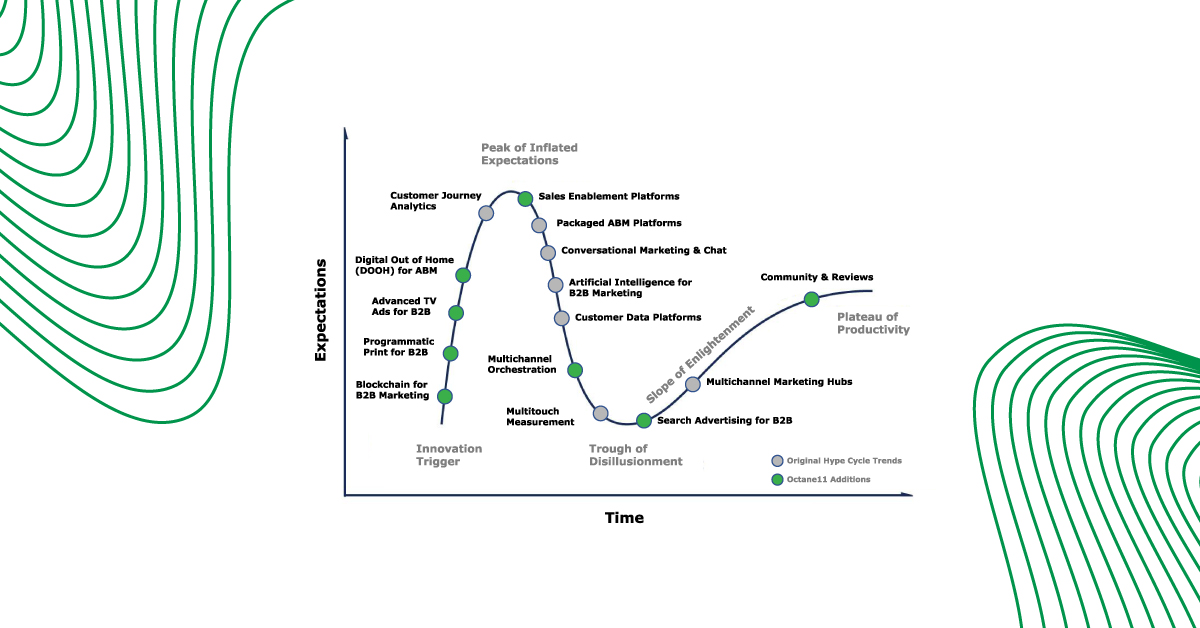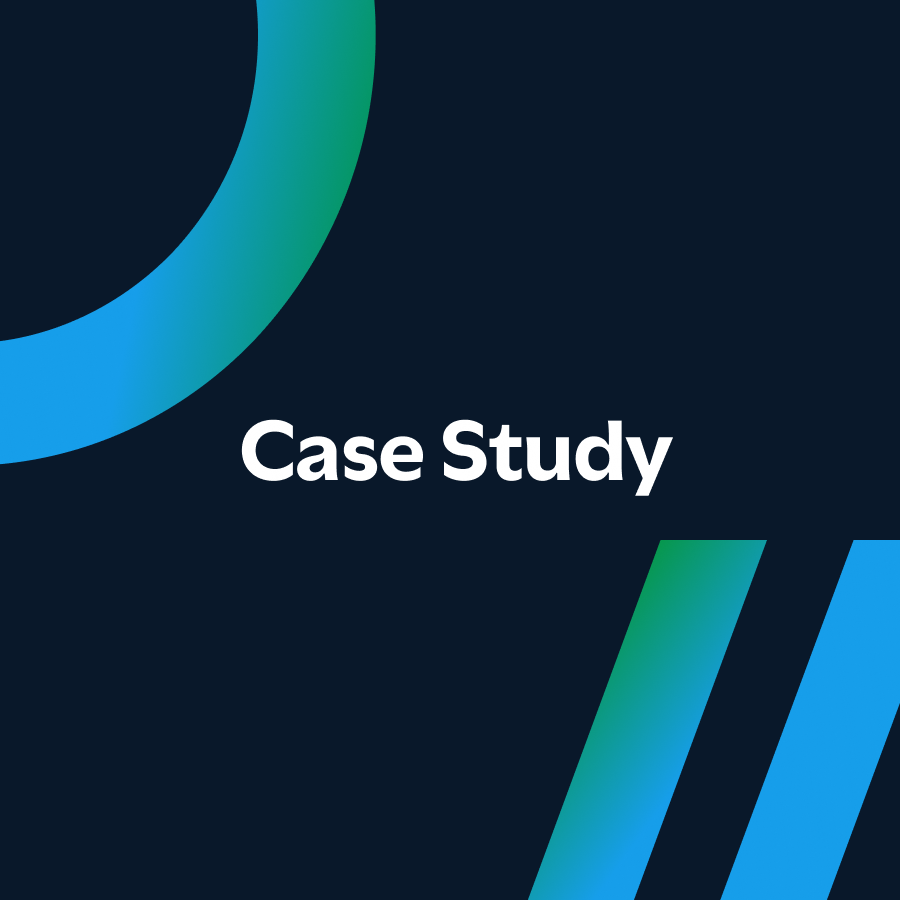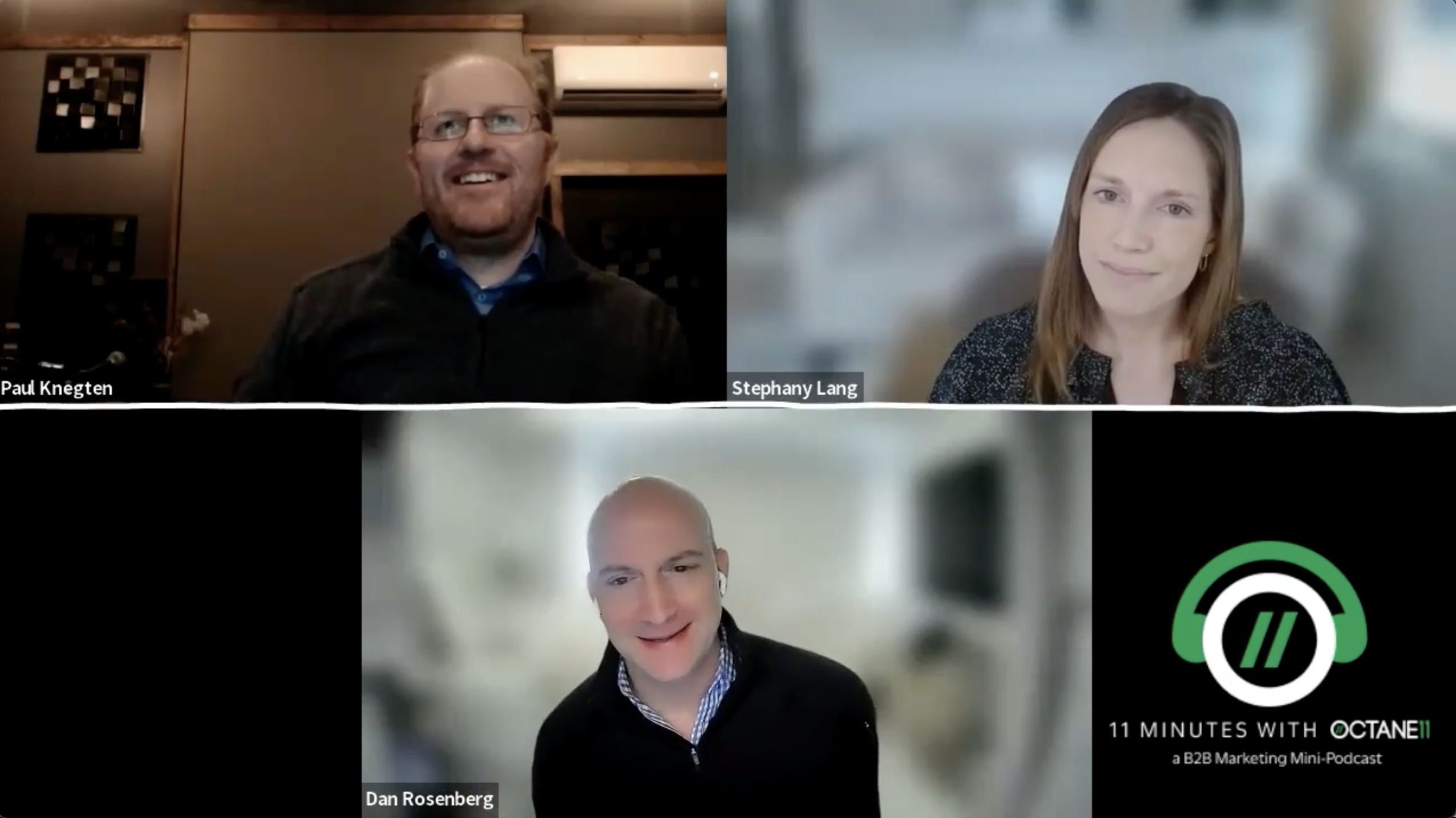In Part 1 of this post last week, I riffed on Gartner’s 2020 Hype Cycle for Digital Marketing, exploring where various technologies would sit on the curve from a B2B-specific perspective. We covered technologies that are “On the Rise” and “At the First Peak” – the part of the curve that sees the most promise…and the most hype. This week, I’m taking a closer look at technologies that are “Sliding into the Trough” and “Climbing the Slope” where technologies begin to face new headwinds as they move past the easy wins and aim to achieve lasting, widespread adoption.
I also provide a quick take on what the catalysts will be for those in the trough to make their way out. Do you agree with these placements and predictions? What else will help these technologies reach maturity? Read on!
Sliding into the Trough
AI for B2B Marketing: AI seems to be sliding into the trough of disillusionment, primarily because it has been so hyped for so long and many of the lowest-hanging fruit opportunities have already been realized – ad decisioning, product recommendations, etc. That said, players like IBM are continuing to push hard on advanced AI use cases for marketing, and as more B2B data sets are integrated and normalized (a core focus for Octane11), AI will go from a novelty to a must have technology for B2B marketers. I expect the trough for this one to be very short-lived.
Customer Data Platforms: CDP’s have exploded in recent years, bringing together the best of CRM’s (known user data across silos) with the best of DMP’s (web-based scale). They haven’t quite caught on as much in the B2B category though – given the importance of company affiliation vs individual identity for the B2B use case. Integrating company and campaign signals to each digital interaction will be a huge unlock for B2B’s and yes, that’s exactly where Octane11 is focused.
Multichannel Orchestration: Orchestration is also sliding into the trough, once again because the easy stuff has already been done (triggered emails, sales outreach, direct mail, etc) — but as channels have fragmented, marketers continue to struggle managing the range of touchpoints they are expected to handle – adding chat, social, audio, CTV, DOOH, in-product messages, help desk, etc, etc, starts to get unwieldy. Single channel is good, multichannel is better, and omnichannel done right is going to be amazing.
Multitouch Measurement: What was once the great hope of digital B2B marketing – clarity on which channels “deserve credit” for which conversations – has given way to complete disillusionment, when after years of arduous integrations marketers have ultimately ended up with arbitrary scoring systems like “100% first touch”, “100% last touch”, “25% first / 25% last / 50% between” and so on. Garbage in, garbage out. Two thoughts on the way through this: (1) Focus less on “getting credit” and more on turning digital interactions into actionable signals for your sales team (ie. which accounts are engaging, on what channels and with what content). If your marketing is helping the sales team do its job better, that’s more than half the battle. (2) Machine Learning will eventually produce accurate attribution models that identify not only correlation, but actual causality — but only once they can be trained on sufficiently large and normalized data sets, which B2B sorely lacks. Watch for AI to put Multitouch Measurement back on an upward trend — and for Octane11 to be part of making that happen.
Search Advertising for B2B: Paid Search can be great for B2C, where everyone within some basic demographic constraints could be a potential customer, but it’s just not that great for B2B. If you filter down your site traffic that arrived via Paid Search to the “Target Accounts” you actually care about, you’ll see that CPM/CPC/CPA shoot up dramatically. We’re starting to see at least some demographic targeting become available, but until it becomes targetable at the company level, I’m afraid Paid Search will remain in the trough for B2B.
Climbing the Slope
Multichannel Marketing Hubs: I always bristle a little at the moniker used to describe this group, since they are heavily focused on email and have only more recently started to support new channels like paid ads, social, chat, most often via third party integrations, but sometimes natively. Overall, HubSpot, Marketo (owned by Adobe) and Pardot (owned by Salesforce) together account for well over 50% of the market in the category, which does speak to the maturity of the segment. At this point, HubSpot is perhaps the most complete across the non-email channels and boasts the highest usability as well, though we still see a perennial argument between going with a “monolithic hub” that may be easy to use, but limited in functionality vs choosing your favorite best-of-breed vendor in each category (which will likely include one of the hubs at least for email) and connecting the dots with an integration tool…like Octane11.
Community & Reviews: We think of buying decisions in a B2C context as emotional – but in B2B when price tags are higher, implementations are longer and careers are often on the line, buying decisions can be much more emotional. With that in mind, it’s no wonder that 3rd party endorsements – whether they’re from large market research companies like Forrester or Gartner or from community sites like G2 or TrustRadius – have climbed the “Slope of Enlightenment” and become must-have tools. Look out for the buyer intent captured on these sites to be further integrated into B2B market intelligence tools creating further value.
So that’s a brief walk through what’s hot and what’s not in B2B Digital Marketing. Hopefully that provides a framework for considering which technologies to deploy now, which vendors to consider, and what the trigger points might be for emerging technologies to be ready for prime time.
What categories did I miss? What vendors did I miss? Come chat with us at www.octane11.com or via our LinkedIn page. We’d love to talk through your B2B technology plans and challenges – and see how we can help you solve them.





